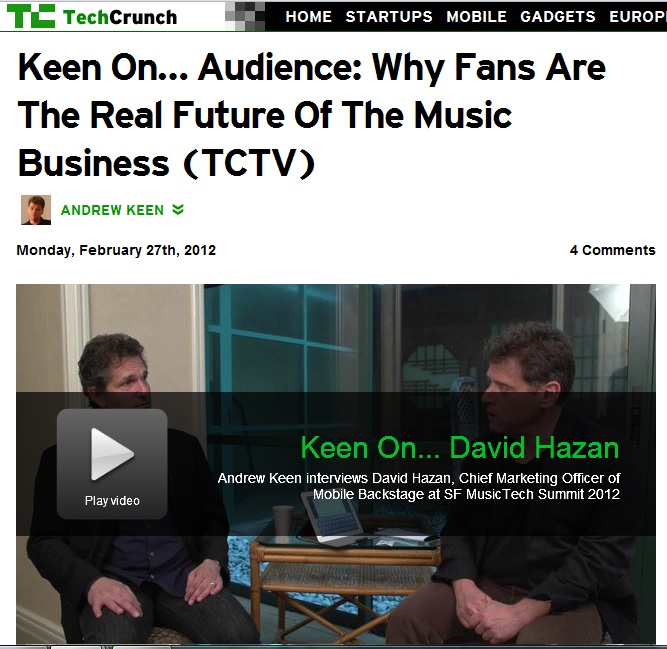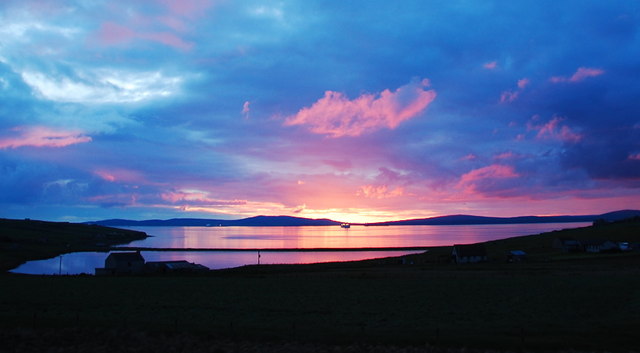The remit to attract new fans of music is a ball that is now almost completely in the court of the artists themselves.
After a decade of digital disruption, even those artists on whom major record labels decide to take a chance, need to have built a significant base of excited, engaged fans following their every move.
The key question in the emerging digital music industry is this:
Where and how do you as an artist attract and engage these fans?
Watch the interview linked from the image above (or start here and watch for just a few minutes, if you want to avoid the awkward interviewer’s preamble).
It features David Hazan of musician-to-fan community service Mobile Backstage and covers some potential solutions to the question above. Although the platform itself is rather new and still to prove itself sustainable as a business, there is a trend towards these types of ‘true fan’ platforms. The reason being that musicians need to connect regularly and deeply with their most passionate core of fans, in order to drive longer term sales of merchandise, concert tickets, and perhaps even (shock) recorded music.
Wide Open Spaces
The intention of this post is not to glorify one specific service in this realm. Rather, I want to focus your attention on the potential online spaces in which you can best attract and engage fans.
Consider questions such as:
- Which platforms (social networks, websites, blogs etc) attract the most new fans to your music?
- Where do you find your fans becoming most passionate?
- How could you combine platforms to deliver a more coherent, interactive space for your fans to gather and interact?
- How could you utilize mobile content to connect with your fans more closely?
- What other media have you not yet tapped to connect with fans? (e.g. video, podcasts, text messaging, crowd funding)
Fan Clubs for the Digital Era
Whatever your answers to the questions above, the overall objective is to find either one highly productive space, or a fusion of many, that in effect becomes the digital fan club for your music and the content, products, and events that surround it.
As outmoded as the notion of a fan club may sound, is it not where the core of your most ardent supporters will gather? Through a combination of interaction with the main event (you!), community with other equally engaged fans, and that intangible ‘inner circle’ feeling that comes of investing oneself in an artist’s work. Furthermore, the excitement that is generated when impassioned fans gather together around a shared interest only furthers the attachment that they feel towards that common denominator. Fans breed further fanaticism.
From this base of hardcore support you can launch all of your future projects, from new music to international tours and other artistic pursuits. And it’s a purer connection in the digital era, as it has been built by you the artist directly, rather than through a convoluted chain of marketing departments and physical retail chains.
Your Two Cents?
Where do you stand on this?
Is it a crucial consideration that needs to now be fully taken up by musicians themselves, or simply another distraction from the true pursuit of making music?
Where do you make the truest connections with your fans?






Connections